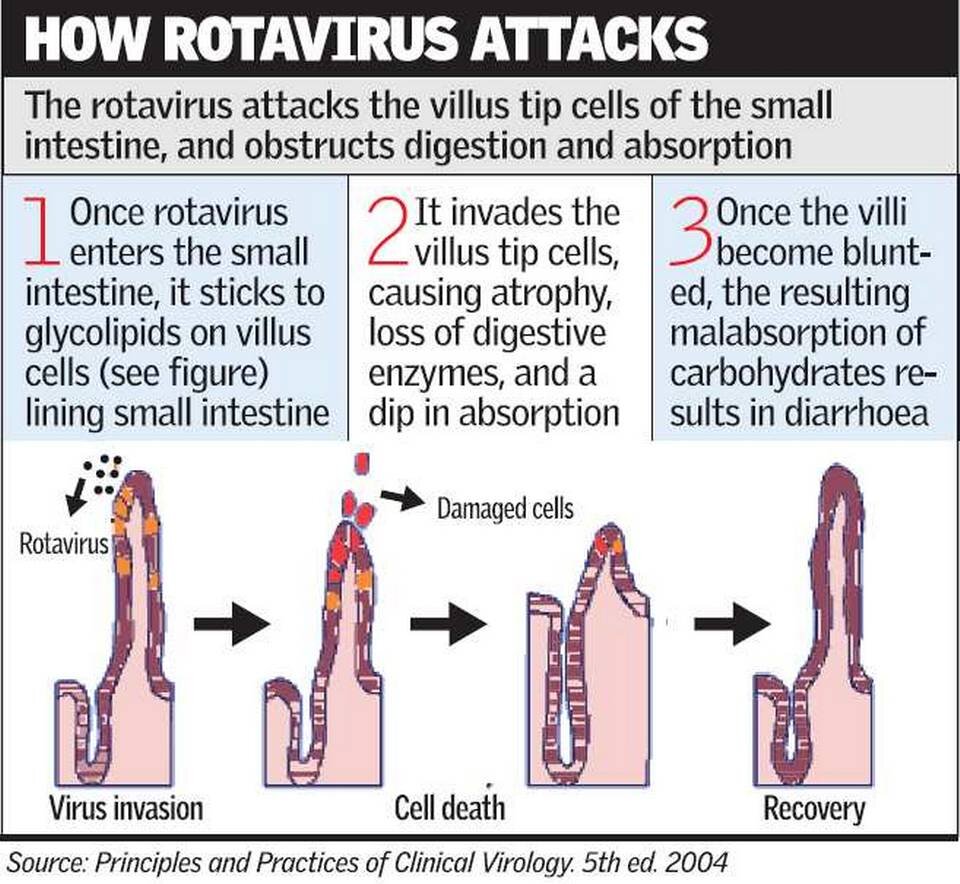Rotavirus Vaccination Drive | 16 Jul 2019
The government of India is set to launch a rotavirus vaccine drive across all states and Union territories by September 2019.
- The vaccine is currently being administered in Himachal Pradesh, Haryana, Odisha, Andhra Pradesh, Assam, Tripura, Rajasthan, Madhya Pradesh, and Tamil Nadu.
- The Rotavac has been introduced in India’s Universal Immunisation Programme (UIP) including Inactivated Polio Vaccine (IPV), Measles, Rubella (MR) vaccine, Adult Japanese Encephalitis (JE) vaccine, Tuberculosis, Diphtheria, Pertussis, Hepatitis B, Pneumonia and Meningitis due to Haemophilus Influenzae type b (Hib).
Rotavirus
- Rotavirus can cause diarrohea, which can lead to dehydration (not having enough water in the body).
- Rotavirus is a contagious disease that spreads easily from child to child.
- Rotavirus spreads when a person comes in contact with the feces of someone who has rotavirus and then touches their own mouth. For example, rotavirus can spread when a child with rotavirus doesn’t wash their hands properly after going to the bathroom and then touches food or other objects.
- Symptoms
- Severe diarrhea
- Throwing up
- Dehydration
- Fever
- Stomach pain
- World Health Organisation (WHO) recommends that the first dose of rotavirus vaccine be administered as soon as possible after 6 weeks of age, along with DTP vaccination (diptheria, tetanus and pertussis).
- WHO has recommended the inclusion of rotavirus vaccine in the National Schedules of the countries where under five mortality due to diarrhoeal diseases is more than 10%.
- Currently, two vaccines are available against rotavirus:
- Rotarix (GlaxoSmithKline): is a monovalent vaccine recommended to be orally administered in two doses at 6-12 weeks.
- Rota Teq (Merck) is a pentavalent vaccine recommended to be orally administered in three doses starting at 6-12 weeks of age.
Monovalent vaccine and Pentavalent vaccine
- Monovalent vaccines are designed to immunize against a single antigen or single microorganism.
- Pentavalent vaccine provides protection to a child from five life-threatening diseases – Diphtheria, Pertussis, Tetanus, Hepatitis B and Haemophilus Influenzae type b (Hib).
